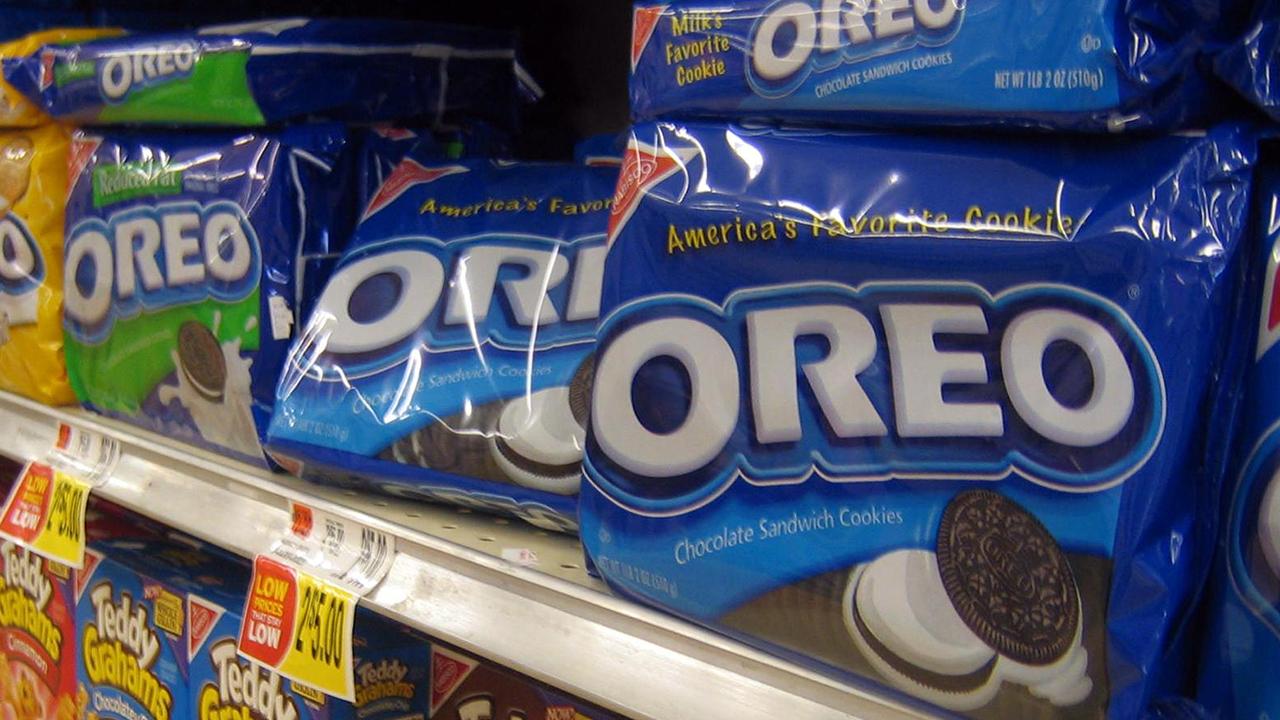Oreo slapped with a complaint by rival for ‘hiding’ its cookies
Let the cookie wars begin.
The owner of Hydrox -- the crème-filled chocolate sandwich cookies that look eerily similar to Oreos -- has filed a complaint with the Federal Trade Commission accusing the iconic cookie brand of foul play.
Ellia Kassoff, who bought the trademark for Hydrox in 2015 after it disappeared in 2008, claims that people working for Oreo, whose brand falls under the umbrella of food giant Mondelez International, intentionally hid their products on supermarket shelves to avoid competition.
“The Oreo guys saw us as a threat, so they started hiding our cookies on shelves to get us discontinued,” Kassoff told The Wall Street Journal.
“It got to the point where I’d had enough, so we filed an official complaint with the Federal Trade Commission in August.”
Kassoff, who still hasn’t heard back from the FTC, added that he wanted to get Congress involved to shed light on the cutthroat cookie business.
However, a spokesperson for Mondelez told the Journal the claims are false and that it doesn’t have any control over product placement on store shelves.
“Much of our shelf placement is due to the fact that Oreo is the No. 1 cookie in the U.S., and retailers typically align premium placement to the fastest-selling products, based on consumer demand. We always operate with integrity, and we are proud to be America’s favorite cookie,” Mondelez said.
Still, Kassoff believes that Mondelez employees have been undertaking a “national program” to damage its cookie brand and prevent them from competing.
In a Facebook post in August, Hydrox Cookies wrote that many of its customers have even been documenting how their cookies have been moved or blocked at certain retailers across the country.
“Some of you have asked, ‘How can those guys hide Hydrox in so many stores?’ The answer is quite simple. Mondelez uses what's called in the industry ‘DSD’ or ‘Direct store distribution.’ What that means is, they have their own trucks and personally deliver and restock supermarket shelves nationwide a few times a week, versus Hydrox which are restocked by supermarket employees at night and moved from their own warehouses,” the Hydrox post said.
CLICK HERE TO GET THE FOX BUSINESS APP
Kassaf, who bought the cookie brand trademark in 2015 for $275 told the Journal that when he relaunched the brand it was in more than 4,000 supermarkets across the country.
Now, it’s only stocked in a few hundred stores and it's mostly sold on Amazon.




















